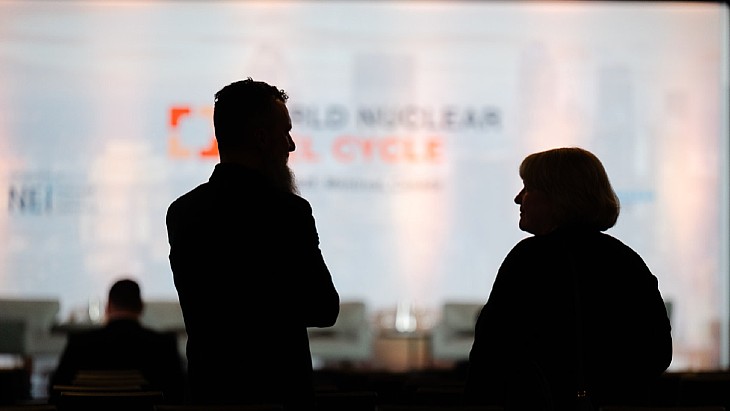VVER fuel reliable in flexible power output tests, says Rosatom
.jpg)
Tests were carried out in the MIR research reactor at the Dimitrovgrad Research Institute of Atomic Reactors for Rosatom's fuel division TVEL. "The test scenario in the research reactor provided a complete simulation of the operation of nuclear fuel in the daily manoeuvring mode of the VVER-1200 power unit in the 18-month fuel cycle," Rosatom said.
The experiment tested the impact of changing the power of the reactor between 100% and 40%, seeking to reflect the patterns of electricity consumption - so 7 hours at 40% power overnight, 4 hours at 100% in the morning, 4 hours at 40% during the day and 9 hours at 100% power in the evening. The tests ran for 224 days during which 218 cycles of power increase and decreases were performed.
Alexander Ugryumov, senior vice president for scientific and technical activities at TVEL, said: "The results of the study confirmed that nuclear fuel produced by Rosatom fully retains its integrity and operability under conditions of multiple rapid changes in the linear power of the fuel element. This is another step towards justifying the operation of Russian high-power reactors in a manoeuvrable mode. Our industry studies on increasing the efficiency of nuclear generation are of considerable interest to foreign operators of Russian-designed NPPs."
The results of the tests mean that work will continue towards the possible future introduction of routine daily load following in nuclear power plant output.
The ability to ramp up - and down - nuclear power output is seen as especially useful in places where a high proportion of energy generation is from nuclear and where there are not gas or hydro power plants which can have their output reduced at times of low demand. Rosatom says: "It is expected that manoeuvring the capacity will help to increase the flexibility and efficiency of energy systems, and ultimately become another factor in the competitiveness of nuclear energy."
The VVER-1200 reactors have been designed to be capable of load following, unlike the older RBMK units which could only operate in baseload mode, which means running at full power the entire time between refuelling and maintenance outages.
_49098.jpg)
_57190.jpg)
_70526.jpg)
_75453.jpg)






_50521.jpg)

